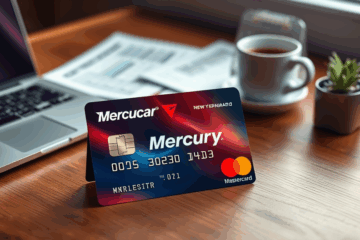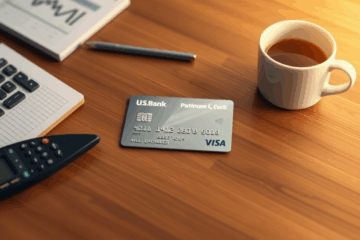Access Quick Credit with Mortgage Guarantee Today
Mortgage Guarantee plays a crucial role in the financial landscape, especially for individuals with bad or fair credit.
In this article, we will explore how Quick Credit offers online installment loans, providing a lifeline to those in need of accessible financing.
With loan amounts ranging from $1,000 to $3,000 and annual percentage rates (APRs) between 185% and 225%, these loans present a feasible alternative to traditional payday loans, enabling borrowers to manage their finances more effectively over time.
Join us as we delve deeper into the advantages and features of these installment loans.
Rapid Property‑Backed Financing Explained
Quick credit refers to fast-access installment loans designed to meet immediate financial needs, typically available to borrowers with bad or fair credit.
This form of financing provides rapid liquidity, often within hours or days, and includes structured repayments over time.
When this credit is secured by a mortgage guarantee, it means the borrower pledges real property—such as a home—as collateral.
This structure significantly reduces the lender’s exposure to risk, allowing for higher approval rates even for individuals with lower credit scores.
As a result, many lenders are willing to approve larger loan amounts more quickly, since the real estate acts as a fallback if the borrower fails to repay.
What makes mortgage-backed quick credit particularly relevant in today’s lending market is its role in bridging gaps between consumer needs and lender caution.
Given the volatility of unsecured debt, lenders benefit from the reduced default risk offered through collateral, while borrowers gain access to critical funds they might otherwise be denied.
Institutions view such loans similarly to Mortgage-Backed Securities, which are also supported by physical assets.
Thus, a property pledge not only unlocks borrowing potential but also enhances the speed and security of financial transactions.
Step‑by‑Step Loan Journey
Step 1: Application
The borrower begins by submitting an online application through the digital loan portal, providing required personal and financial information for initial assessment
Step 2: Document Submission
Following application, the borrower uploads essential documents including income verification, identification, and ownership information of the property offered as collateral
Step 3: Credit Evaluation
The lender conducts a thorough credit review to assess the borrower’s payment history, existing debts, and repayment behavior, which plays a critical role in determining loan approval
Step 4: Property Appraisal
Property appraisal is arranged to independently determine the current market value of the property backing the loan, directly influencing the maximum loan amount that can be extended
Step 5: Underwriting
Loan officers evaluate all submitted data—credit report, income, and collateral evaluation—ensuring the request complies with lending risk standards and internal policies
Step 6: Approval and Agreement
Once approved, a loan agreement outlines the repayment terms, interest rate, and collateral responsibilities, which the borrower reviews and electronically signs
Step 7: Disbursement
Disbursement occurs shortly after all formalities are completed, with the agreed amount transferred directly to the borrower’s account, enabling access to urgent financing when needed
Key Advantages for Borrowers
Borrowers seeking quick credit backed by a real estate asset gain decisive advantages, combining both accessibility and cost-efficiency.
Property-secured quick credit reduces the lender’s risk profile due to the added security of collateral.
As a result, borrowers often enjoy significantly more favorable terms when compared to unsecured loans
One of the most notable benefits is the lower interest rate.
Since the loan is backed by a tangible asset, lenders feel secure enough to offer secured loans at more affordable rates, making repayment considerably more manageable.
This type of structure is also ideal for borrowers with fair or bad credit, improving their chances of approval while helping rebuild their financial standing
Additionally, loan amounts tend to be higher, offering more flexible options to meet urgent financial needs.
Thanks to the attached collateral, funding time can also be expedited, especially when applying outside conventional banks
- Lower interest rates
- Higher approval chances
- Faster funding access
- Larger loan amounts
The combination of affordable lending terms and speed turns property-secured quick credit into a strategic solution for consumers facing credit restrictions and urgent financial needs
Eligibility and Required Documents
To qualify for a mortgage-guaranteed quick credit loan, borrowers must meet certain core criteria that align with standard lending policies.
Lenders evaluate several factors to determine approval eligibility, including credit history, debt-to-income ratio, and ability to repay the loan.
While Quick Credit specializes in serving individuals with fair or bad credit, applicants still need to demonstrate a minimum level of financial responsibility.
Most borrowers will need a credit score of at least 580, similar to programs like the FHA loan criteria, which can offer mortgages with low down payments for individuals with weaker credit profiles.
Documentation plays a central role in the approval process.
Borrowers must typically submit a valid government-issued ID, proof of employment, and recent pay stubs or tax returns.
In some cases, banks will also ask for bank statements to verify available capital, and property information when mortgage backing is involved.
Additionally, a verifiable source of steady income is essential, as lenders must ensure the applicant can handle installment payments.
These documents provide lenders confidence that the borrower qualifies under the four C’s—capacity, capital, collateral, and credit—which are fundamental for mortgage-guaranteed loans.
Potential Risks and Cautions
Borrowers considering quick credit secured by property should recognize the serious financial risks tied to these agreements.
While leveraging a home, car, or other valuable asset may offer faster approval and larger loan amounts, the consequences can be devastating if repayment falters.
Quick credit providers often target individuals with poor credit, offering high-interest loans that are difficult to repay over time.
These loans may appear manageable initially; however, substantial APRs—ranging from 185% to 225%—can drastically inflate the repayment amount.
When the borrower struggles with even a few payments, the lender may seize the collateral, leaving them at risk of losing vital property.
Additionally, placing essential assets like a home at risk creates long-term instability.
According to Equifax’s overview of secured loans, secured credit may be easier to obtain but comes with higher personal exposure, especially for borrowers with poor credit histories.
Before committing, weigh the following significant hazards:
- Property repossession if payments stop
- Excessive interest draining long-term finances
- Borrowing more than necessary due to easy approval
- Unrecoverable damage to credit if default occurs
While fast funding may feel urgent, risking your home or vehicle in exchange could create more instability than relief.
Always analyze long-term repercussions and consider unsecured options from verified providers like Credit Karma’s personal loan alternatives
How It Compares to Other Loans
When comparing Quick Credit loans backed by a mortgage guarantee with other available loan options, the main differences surface in terms of interest rates, approval criteria, and overall risk exposure.
Mortgage-guaranteed loans generally offer lower APRs compared to unsecured loans, as the home equity significantly reduces the lender’s risk.
While Quick Credit APRs may still range from 185% to 225%, this is less predatory than payday loans, which can surpass triple-digit percentages with unmanageable terms.
Payday loans, often criticized by experts at Bankrate, trap borrowers in cycles of debt due to balloon payments and short terms.
Meanwhile, unsecured personal loans or credit cards have variable APRs depending on an individual’s credit, but are rarely accessible to those with poor credit, unlike Quick Credit’s model.
Processing speed plays a major role in selecting financing options.
While mortgage-established installment loans may require verification of home ownership, Quick Credit offers a streamlined process for borrowers with fair or bad credit—transactions are set up faster than traditional mortgage routes, with better repayment flexibility than credit cards.
The tradeoff lies in the higher rates due to borrower risk.
However, securing the loan with a property guarantee decreases volatility significantly when compared to unsecured formats such as credit cards and payday loans.
| Product | Security | Typical APR |
|---|---|---|
| Quick Credit (Mortgage) | Property | 185% – 225% |
| Unsecured Personal Loan | None | 6% – 36% |
| Payday Loan | None | 300%+ |
| Credit Card | None | 18% – 25% |
In conclusion, Quick Credit’s online installment loans offer a valuable solution for those with bad or fair credit.
By providing manageable repayment options and accessible financing, they stand out as a preferable choice compared to payday loans.



0 Comments